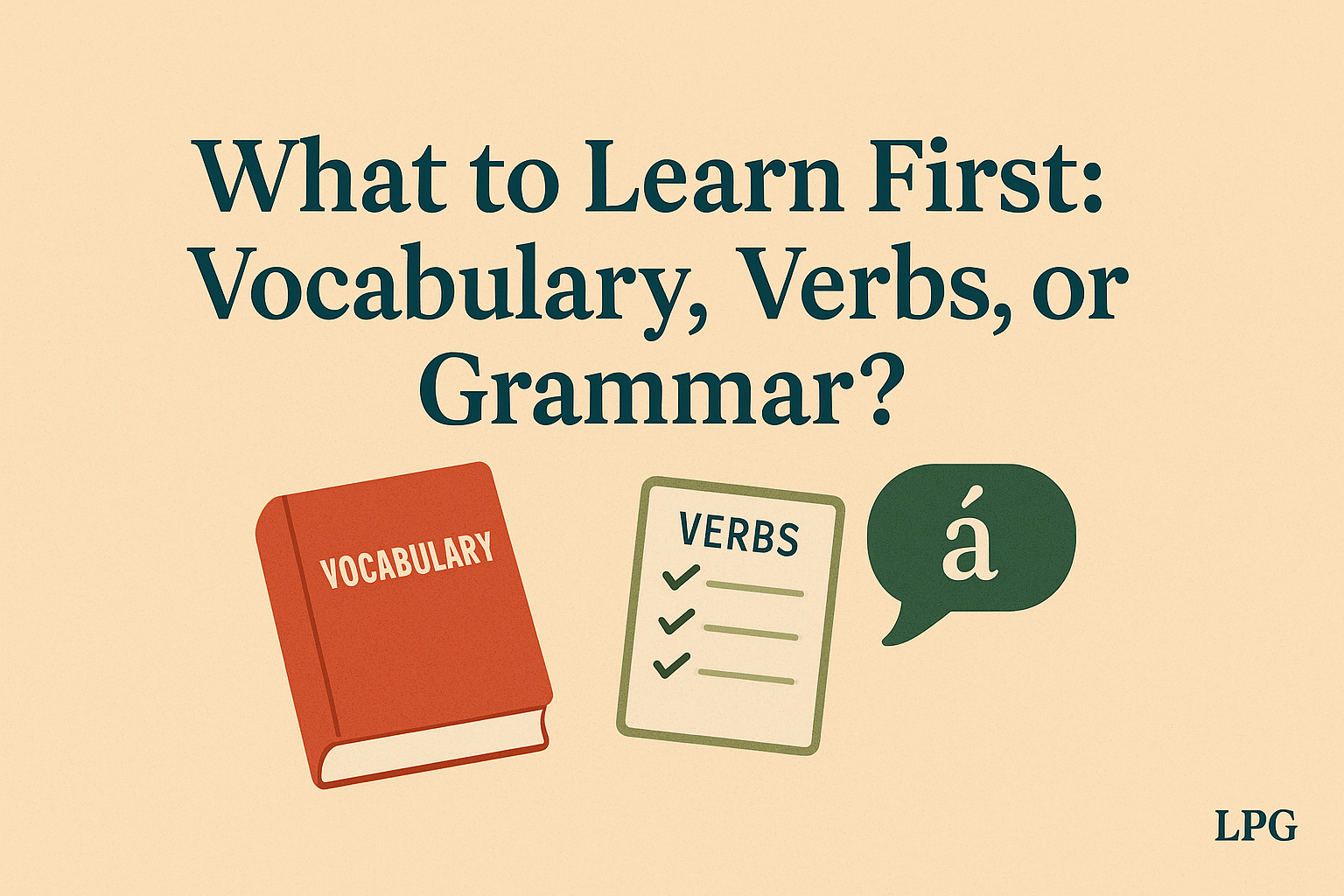
Learning Strategy & Planning
What to Learn First: Vocabulary, Verbs, or Grammar?
When you’re just beginning your Portuguese journey, it’s easy to feel overwhelmed. Do you start memorising words? Learn verb endings? Tackle grammar rules?
Here’s how to approach it in a way that builds confidence and gets results.
🧠 Step 1: Vocabulary First (But Not Any Vocabulary)
You need words to say anything, so yes, vocabulary should come first. But not just random lists.
Start with high-frequency words:
- Greetings and introductions
- Days, numbers, time, and basic questions
- Everyday objects and common verbs
Apps like Memrise or Anki can help you build these with spaced repetition.
Bonus tip: Learn vocabulary in chunks, not just individual words, but phrases like “Tenho fome” (I’m hungry) or “Como te chamas?” (What’s your name?).
🔁 Step 2: Add Verbs in Context
Portuguese verbs are famously complex but don’t panic. At the start, focus on:
- Present tense of ir, estar, ser, ter, and gostar
- Simple regular verb patterns: -ar, -er, -ir
- Common daily actions (e.g. comer, beber, falar, estudar)
Don’t just memorize charts. Instead, see verbs in real sentences, use them in writing, and practise saying them aloud.
🧱 Step 3: Introduce Basic Grammar to Build Structure
Once you’ve got some vocab and verbs, grammar starts to matter.
Start with:
- Gender and articles (um/uma, o/a)
- Simple sentence structure (Subject + Verb + Object)
- Personal pronouns and question words (quem, o quê, onde, etc.)
Keep grammar practical, learn just enough to unlock communication, then revisit and refine over time.
🚀 What Not to Do
- Don’t start with irregular verb tables or passive voice.
- Don’t aim to master all tenses right away.
- Don’t try to learn everything at once. Language learning is layered.
🎯 Final Advice
Start with the words and phrases you’d actually use in your daily life. Build a small, useful core of vocabulary, add basic verbs, and learn just enough grammar to create real sentences.
The rest will grow from there.
Ready to build a solid foundation in European Portuguese? You’re in the right place.